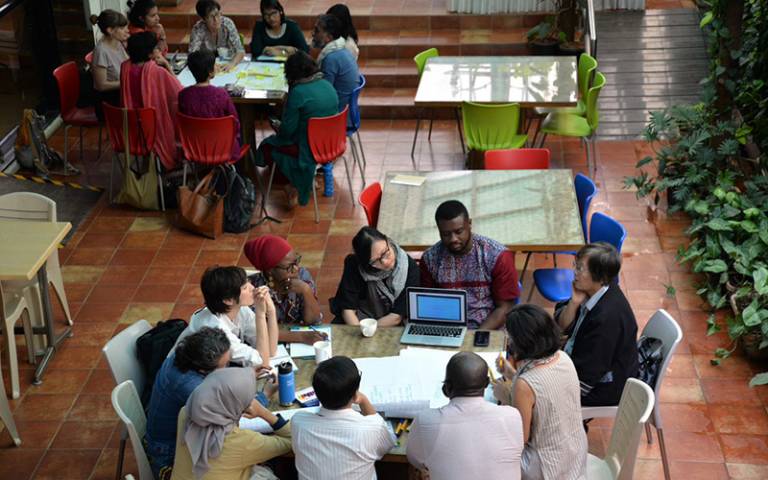Building toward urban equality at third annual KNOW workshop
13 March 2020
Knowledge in Action for Urban Equality (KNOW) partners, including UCL Bartlett Development Planning Unit, convened in Bengaluru, India to discuss the future of the project

Over three days in January 2020, Knowledge in Action for Urban Equality (KNOW) conducted their third annual workshop on urban inequality, which this year took place in Bengaluru, India. Funded by UKRI’s Global Challenges Research Fund, KNOW is a four year research and capacity building project that brings together a global network of interdisciplinary partners to address urban inequality in the global South.
Hosted by the Indian Institute for Human Settlements, the workshop this year followed directly on from the IIHS Urban Arc conference, where the theme was focused around the challenges of “Equal Cities.” The conference provided a platform to explore and share learnings from the KNOW project around notions of equality in a rapidly urbanising world. In the three-day workshop that followed, KNOW partners from twelve cities and thirteen institutions, including UCL Bartlett Development Planning Unit, UCL Bartlett School of Architecture and UCL Institute for Global Prosperity, met to discuss the future of the project.
This year’s workshop marked the halfway point of the program, making it a critical moment to reflect on activities already taken, as well as for collectively strategising on what steps to take next. Three key themes emerged from the workshop: epistemic justice and care; grounded definitions; and collective learning.
Epistemic justice
KNOW members worked to articulate how epistemic justice and ethics of care informed their work towards achieving urban equality. Epistemic justice refers to the need to focus on supporting people whose experiences are devalued as a result of their identity or social group, while ethics of care draws attention to values such as respect, responsibility and solidarity, including how these things play out in research relationships. Understanding how both these concepts inform urban inequality will help drive the project forward.
Grounded definitions
There was a strong focus on unpacking the definitions of three cross-cutting themes: poverty, resilience and prosperity. KNOW teams explored the interconnections of these terms, reflecting on these concepts as processes, not just outcomes. In the context of informal settlements where residents often go unheard, establishing grounded understandings of these concepts, and their locally-specific manifestations, is a powerful starting point for building pathways to urban equality.
Collective learning
Finally, the workshop emphasised not just what is being learned about urban equality, but how. For example, learning happens through city planning curricula, but also through social movements, grassroots schools, and in everyday practices of producing a city. While KNOW researchers discussed the importance of knowledge co-production, they also reflected on the ‘non-comparable’ or ‘non-translatable’ aspects of knowledge production and how an ethical framework must underpin both shared and divergent learning processes.
As the project heads into its third year, there will be a greater focus on activating impact strategies in different localities and continuing to foster partnerships with equivalence. Through sharing KNOW’s research findings and activities with practitioners and policy-makers, the project aims to foster new partnerships and collective inquiry to build pathways to urban equality.
You can find out more about the workshop at www.urban-know.com/workshop2020.
For the latest news about UCL’s international activity, partnerships and opportunities, subscribe to our bimonthly Global Update newsletter.
 Close
Close

